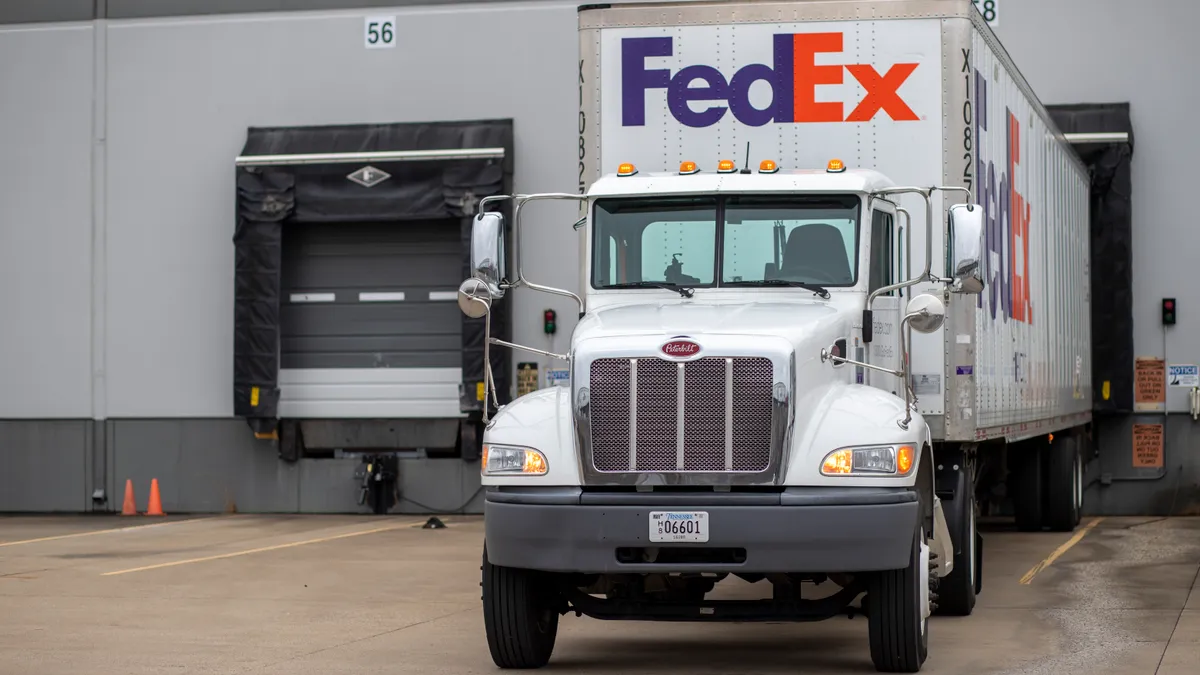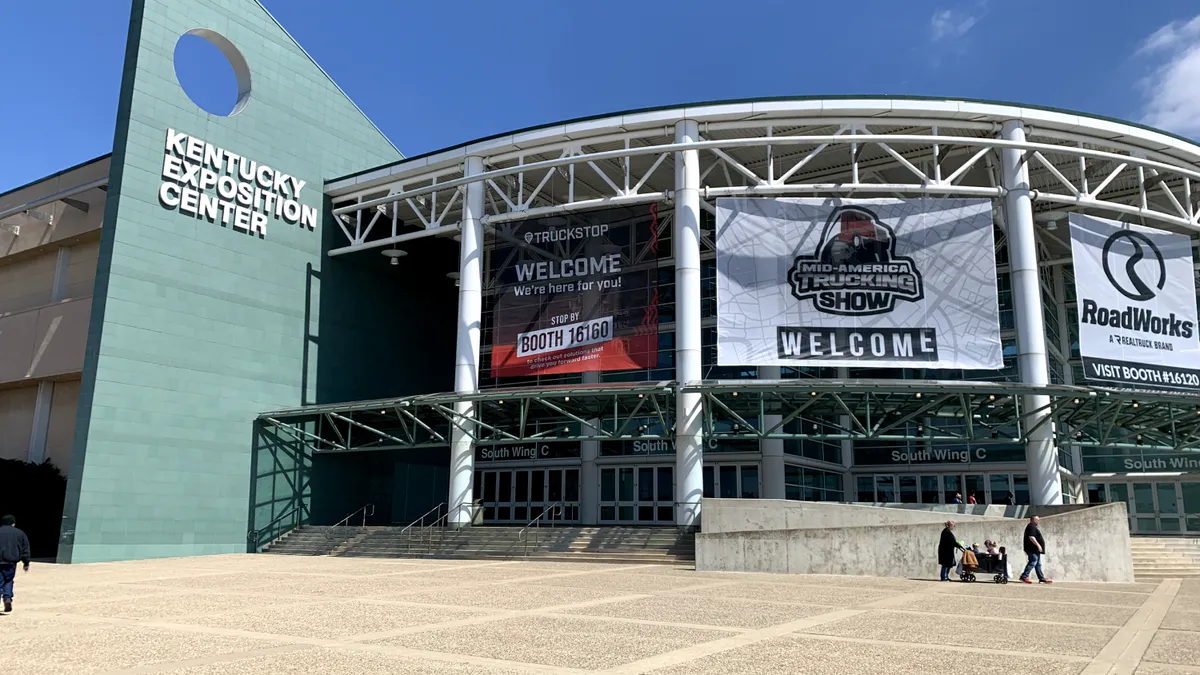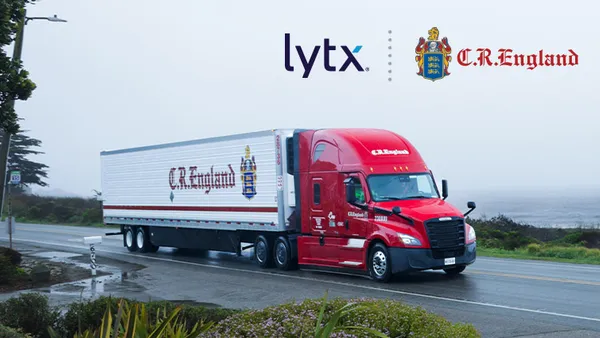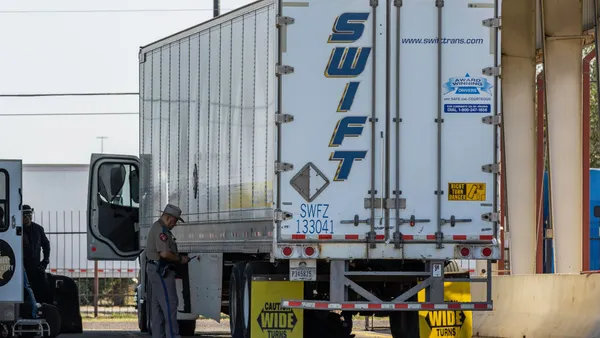LOS ANGELES — A line of trucks were parked with placards on their rigs when Gene Seroka, the Port of Los Angeles executive director, passed by on his way from touring a visitor around Terminal Island this week.
“NO TO AB5,” some of the protest messages read.
Hundreds of drayage drivers who haul cargo in Los Angeles and Long Beach participated in a work stoppage Wednesday in protest of the state’s landmark labor law. Drivers in Oakland are also expected to take action beginning Monday.
So far, the trucker strike has had no impact on port operations, but officials are monitoring the situation, Seroka said.
#Truckers jamming traffic on the 710S in #LosAngeles! @knxnews #AB5 pic.twitter.com/EtwBwGiZSH
— Craig Fiegener (@CraigNews3LV) July 13, 2022
“We planned for this days ahead to make sure that these protests were peaceful and organized,” he said. “We gave them the breadth and depth of space they needed to voice their opinions, but [we] kept this cargo moving through the port complex, and these drivers are very respectful of just that.”
Organizers initially planned for a 24-hour demonstration, but a “massive crowd” of drivers responded with such enthusiasm that they plan to continue the action, said Cindy Perez, who planned the protest with other administrators of the LA & LONG BEACH PORT DRIVERS Facebook page.
Perez, a 28-year-old Long Beach driver for her owner-operated company, Aztec Enterprises, said she would continue leading the protests “as long as they continue showing up.”
“Our goal is to get exempted from [AB5], to get carved out from it, just like other industries,” she said. “And if we're not, we at least want to know why.”
During his monthly briefing, Seroka said it’s too early to quantify the potential supply chain effects of the AB5 law, which requires owner-operators to be classified as employees of the companies for which they drive.
Enforcement of the labor law, which aims to eliminate misclassification and expand worker benefits, could soon be on the way. The California Trucking Association unsuccessfully appealed AB5 to the Supreme Court, and dozens of other industry groups plan to ask Gov. Gavin Newsom this week for more time to allow businesses to comply.
The governor’s office is looking into the coalition’s concerns, Deputy Press Secretary Daniel Villaseñor said in an emailed statement.
California has “developed and implemented strategies to reduce potential stress on the supply chain and tackle the impacts of global supply chain issues, and we will continue to closely monitor for potential impacts,” the governor’s office statement said.
Hanging in the balance is the fate of California’s roughly 70,000 owner-operators, many of whom haul loads for the ports of Los Angeles and Long Beach in the busiest port complex in the country. The California Trucking Association estimates more than 70% of those port drivers are owner-operators.
“It is clear that a very large contingent of truck owners have taken recent developments regarding AB5 as a direct threat to their livelihoods,” Harbor Trucking Association CEO Matt Schrap said in a statement Wednesday.
Neither the Harbor Trucking Association nor the California Trucking Association organized the work stoppage or protests, the groups said.
But Schrap said most owner-operators enjoy their independence and don’t want to work as direct employees. If they did, he said, they would take one of the hundreds to thousands of open employee-driver positions.
“The frustration with the total lack of regard by the state of California for a business model that has provided thousands of men and women an opportunity to build and grow a business is now blatantly obvious,” Schrap said.
AB5 is just one of several challenges facing the state’s trucking industry, Seroka said. New engine model years standards from the California Air Resources Board are set to eliminate about one-third of all the trucks available to haul cargo at the San Pedro Bay Ports, he said, while the industry and public sector hustle to improve driver recruitment and retention.














